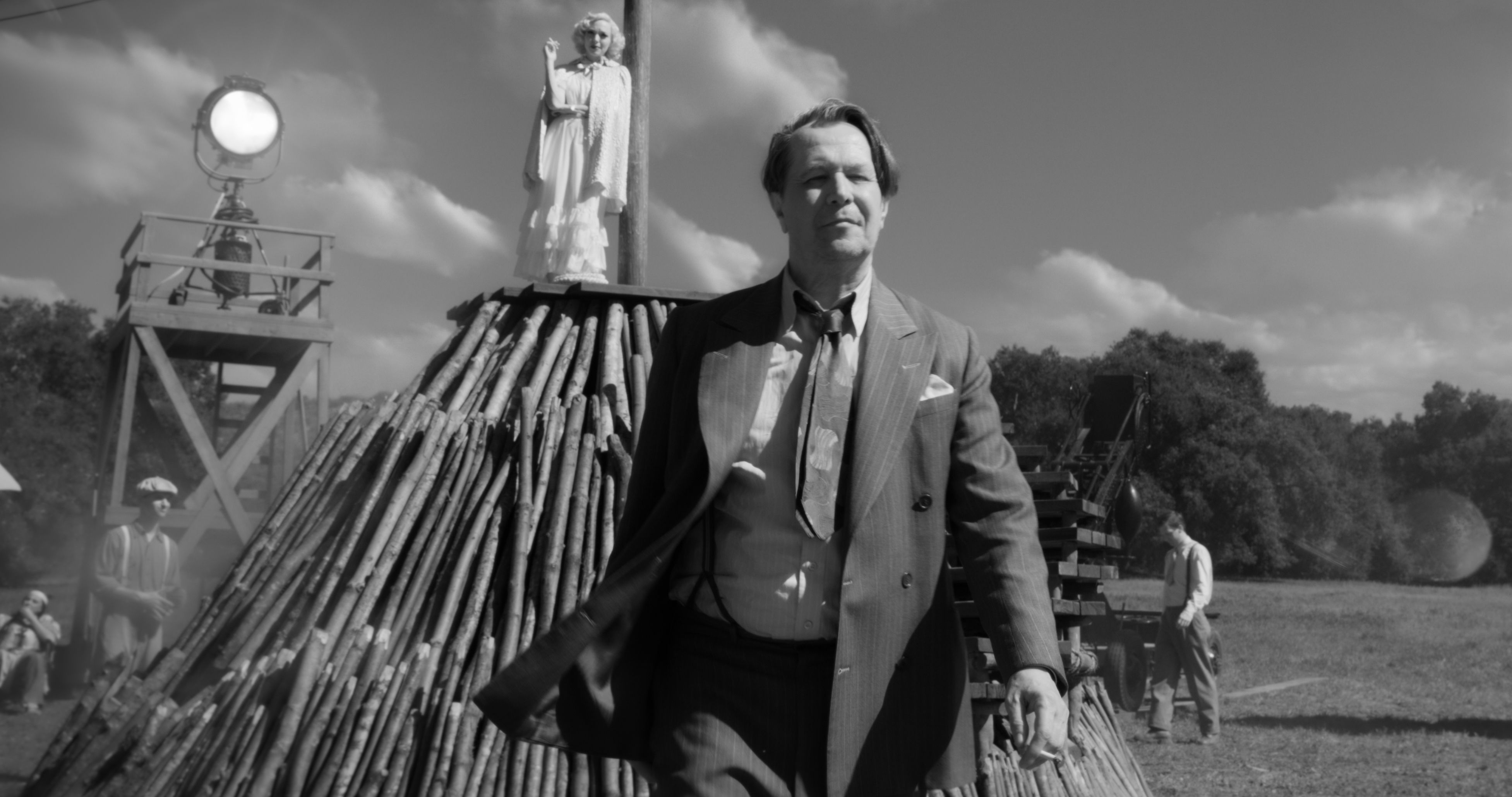In David Fincher's latest movie Mank, we see the circumstances surrounding the creation of one of the greatest movies of all time, Orson Welles' 1941 classic Citizen Kane. Mank questions the scope of Orson Welles' involvement in his career-defining movie, and whether his writer Herman J. Mankiewicz, played by Gary Oldman, deserves more credit for how the movie turned out. In an interview with Deadline, Oldman shared his thoughts on who deserves greater glory for Citizen Kane.
"It is a little cheeky of Mankiewicz [to hand in a first draft of Citizen Kane that is 325 pages long] because he was an old hand at this. He had written many scripts. He was essentially a script doctor. He was someone, if a script wasn't working, someone at the studio would say, here, throw this over to Mankiewicz and have him put it through his typewriter, see what he can come up with. See if he can give us some snappy lines, we need some funny lines, you know, "Give it to Herman." So, he'd been doing this a long time and he knew that movies were running at 73 minutes, 86 minutes in this era, so to hand in a first draft of 325 pages, I mean, that's a sort of Fuck you back then, and he handed that in."
While Citizen Kane bills Welles as the lead actor, director, and producer, the writing credit for the movie also initially rested solely with Welles. After Mankiewicz placed a formal complaint with the Screen Writers Guild, he won the case, and received a co-writing credit for the movie. Welles himself countered claims at the time that he was being unfair to Mankiewicz by claiming that, "at the end, naturally, I was the one making the picture, after all-who had to make the decisions. I used what I wanted of Mank's and, rightly or wrongly, kept what I liked of my own." But Gary Oldman believes Welles was making a deliberate attempt to downplay Mank's role in the creation of the film he is best known for to this day.
"[The story] was in there and Mank delivered [the script] that Welles chipped away at. Yes, he did not have a writing credit initially because Welles needed a safety net. He knew that Mank was the guy for the job, but he also knew of Mank's reputation, and was he going to be the Mank that lived up to the challenge and came through or was he going to be the drunk Mank that could not deliver or just folded up his typewriter and reneged, basically, on the project? So, he needed, and I think initially in the contract, he needed that safety net. Mank did take it, or he presented it to arbitration and then withdrew it, this whole title/credit issue, and as you know, in the end Welles circled his name and drew an arrow. It was Orson Welles, Herman J. Mankiewicz, and he just circled Mankiewicz's name and drew an arrow, basically giving him above, top billing, but I think, yeah, it was all there."
Directed by David Fincher, Mank stars Gary Oldman, Tom Burke, Amanda Seyfried, Lily Collins, Tuppence Middleton, Arliss Howard, and Charles Dance. The film arrived in theaters on Friday, November 13, and debuted on Netflix Friday, December 4. This news was first reported at Deadline.

